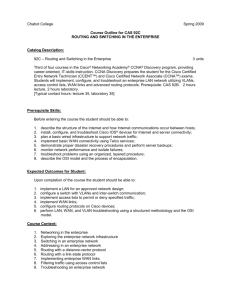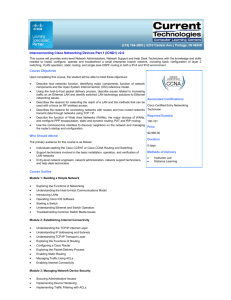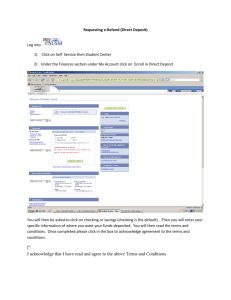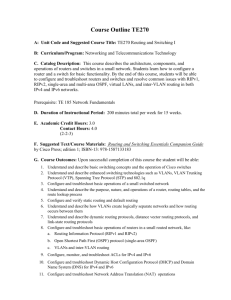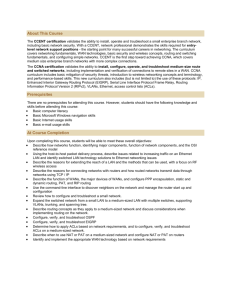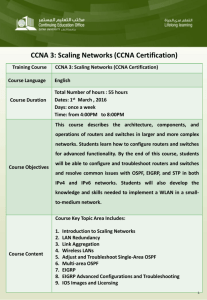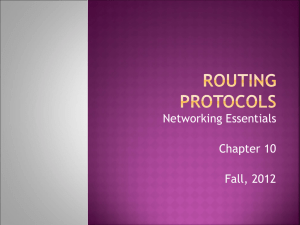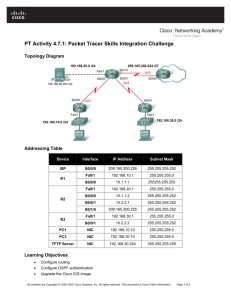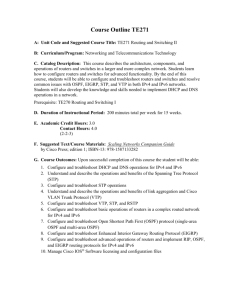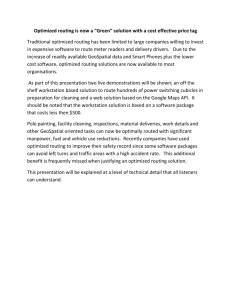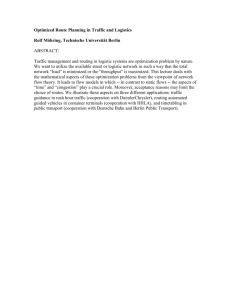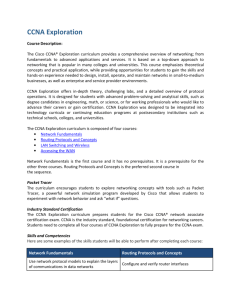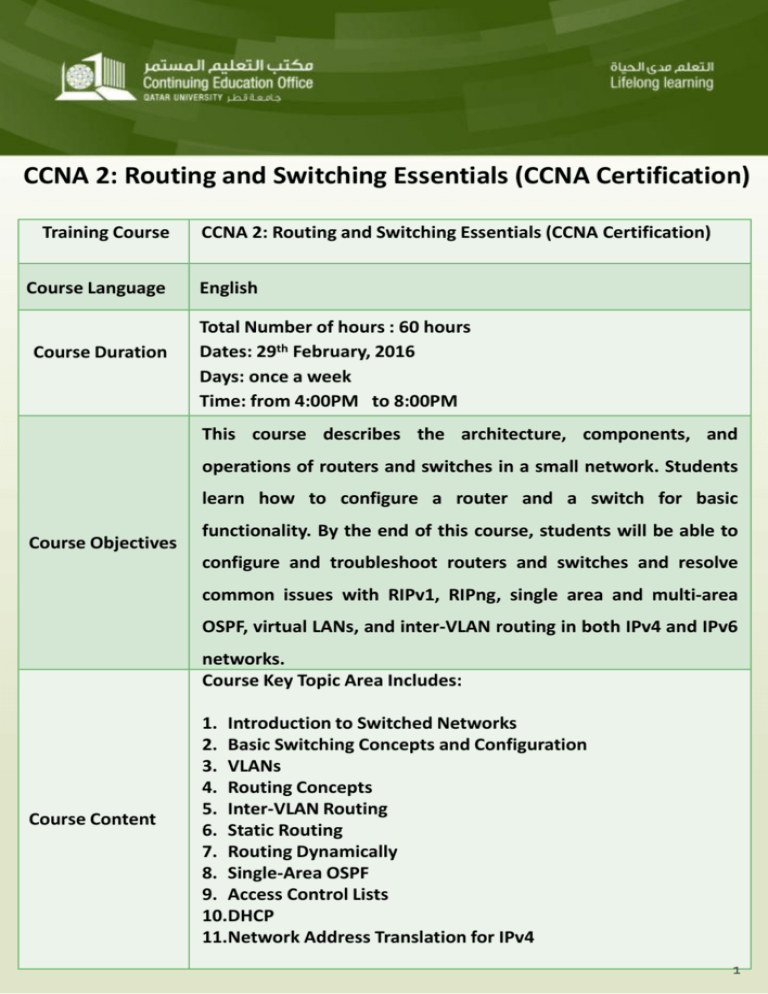
CCNA 2: Routing and Switching Essentials (CCNA Certification)
Training Course
Course Language
Course Duration
CCNA 2: Routing and Switching Essentials (CCNA Certification)
English
Total Number of hours : 60 hours
Dates: 29th February, 2016
Days: once a week
Time: from 4:00PM to 8:00PM
This course describes the architecture, components, and
operations of routers and switches in a small network. Students
learn how to configure a router and a switch for basic
Course Objectives
functionality. By the end of this course, students will be able to
configure and troubleshoot routers and switches and resolve
common issues with RIPv1, RIPng, single area and multi-area
OSPF, virtual LANs, and inter-VLAN routing in both IPv4 and IPv6
networks.
Course Key Topic Area Includes:
Course Content
1. Introduction to Switched Networks
2. Basic Switching Concepts and Configuration
3. VLANs
4. Routing Concepts
5. Inter-VLAN Routing
6. Static Routing
7. Routing Dynamically
8. Single-Area OSPF
9. Access Control Lists
10.DHCP
11.Network Address Translation for IPv4
1
Learning
Outcomes
At the end of the program the trainees will be able to:
• Understand and describe basic switching concepts and the
operation of Cisco switches 2013 Cisco and/or its affiliates.
All rights reserved. This document is Cisco Public. Page 5 of
12
• Understand and describe the purpose, nature, and
operations of a router, routing tables, and the route lookup
process
• Understand and describe how VLANs create logically
separate networks and how routing occurs between them
• Understand and describe dynamic routing protocols, distance
vector routing protocols, and link-state routing protocols
• Configure and troubleshoot static routing and default routing
(RIP and RIPng)
• Configure and troubleshoot an Open Shortest Path First
(OSPF) network
• Understand, configure, and troubleshoot access control lists
(ACLs) for IPv4 and IPv6 networks
• Understand, configure, and troubleshoot Dynamic Host
Configuration Protocol (DHCP) for IPv4 and IPv6 networks
• Understand, configure, and troubleshoot Network Address
Translation (NAT) operations.
•
•
Target Audience
•
Public IT students and professionals from inside and outside
the university.
Students who are seeking entry-level jobs in the ICT industry
or hope to fulfill prerequisites to pursue more specialized ICT
skills.
Public ICT professionals who are seeking entry-level jobs in
network planning, troubleshooting, and design.
Course Material
Online materials to be downloaded from the QU Cisco website
http://cisco.qu.edu.qa
Course Fees
QR 3000
15% discount for online registration and payment.
2

